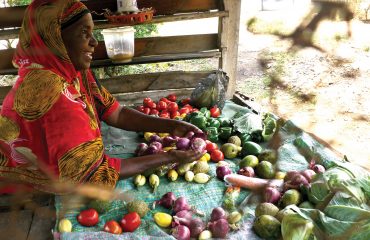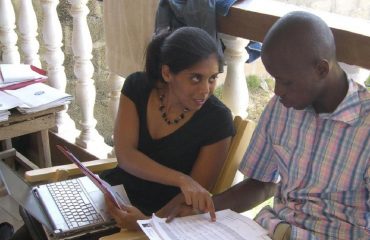
Primary school from Kagera region.
In recent years, handwashing with soap has been gaining recognition as an important practice for maintaining good health. Many international organisations, including the World Health Organization (WHO), have taken part in promoting regular handwashing with soap. This is mainly because current scientific evidence shows that handwashing with soap reduces transmission of infectious agents and is an effective means to prevent infections.
Since the effectiveness of handwashing is well-established, the scientists at the Mwanza Intervention Trials Unit (MITU) are working to include this practice as part of a package of public interventions aiming to combat worm infections among primary school children in Kagera region, northwestern Tanzania. Recently, Dr. Kenneth Makata and his colleagues published an article in PlosOne that describes their work, which uses handwashing with soap as a tool to reduce the burden of common worm infections (namely Ascaris lumbricoides and Trichuris trichiura) in the study population. This article presents results of a survey which was conducted before the implementation of a large study aiming to assess the effectiveness of a range of measures, including handwashing with soap, in reducing the chance of getting new worm infections following mass treatment of school children.

Handwashing facility with painted nudges from one intervention school.
It is interesting to note the innovation that goes into the design of this research project. Dr. Makata and his colleagues installed handwashing facilities close to the latrine building in 8 primary schools taking part in this study in 3 districts of Kagera region.
Each facility had replenishable pieces of soap to be used. The team also painted the pathways linking latrines and handwashing facilities to make them look friendly and to sub-consciously motivate the school children to use the facilities to wash hands. Teacher-led classroom teaching and sessions to involve parents were also provided as part of the package.
“We were very pleased to see school children highly motivated to use the facilities after their installations,” said Dr. Makata who coordinated all activities related to this study in Kagera. “Our study confirms that worm infections among school children are a major health problem in Kagera region”. Results of the main study have been submitted for publication.






